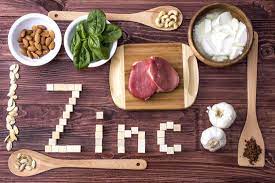Disappearing Zinc

Have you heard about the importance of zinc for the immune system?
Have you started taking zinc?
Have you ever wondered why your immune system doesn’t have enough zinc?
Let’s explore the mystery of zinc and find ways to keep it in full supply.
Why it’s important
Zinc has been proven to be very useful against Covid-19. Hospitalized patients with low blood-zinc levels tend to fare worse than those with higher levels.
“Lower zinc levels at admission correlate with higher inflammation in the course of infection and poorer outcome” Dr. Roberto Guervi-Fernandez.
In this small hospital study the average zinc level for survivors was 20 mcg/dL higher than the ones that didn’t. Survivors averaged 63mcg/dL. Every unit increase of zinc was tied to a 7% decrease in odds of dying.
How it works
Numerous studies have demonstrated the benefits of zinc in the development and function of the immune system.
Examples include:
- Increase cell integrity to impede entrance of virus
- Directly inhibits viral replication
- Balances the immune response during infection
- Plays an important role in reducing inflammation
Zinc deficiency results in altered numbers and dysfunction of all immune cells. Deficiency is responsible for 16% of all deep respiratory infections. The World Health Organization estimates that one third of the population is zinc deficient as mild cases are mostly unnoticed.
Where is it found?
High zinc foods:
- Meats (Americans get most of their zinc from beef and chicken)
- Nuts and seeds (especially pumpkin and sesame)
- Baker’s Yeast
- Dark chocolate
- Vegetables
- Fortified grains and cereals (Which we should NOT eat, read below)
Where does it all go?
Besides the functions needed for your immune system, zinc is also used for: (Yes more bullet points)
- Blood sugar stability
- Production of stress hormones
- Anti-inflammatory hormone production
- Activation of Vitamin B-6
- Production of neurotransmitters Serotonin, GABA, and Dopamine
- Production of Testosterone
- At least 3 liver detoxification pathways
- Converting inactive thyroid hormone to its active form
This list is much longer, but you get the idea.
How to plug the zinc drain
A lot of bodily functions depend on zinc. To hang onto more of it there are several things to be aware of. Let’s try a list this time:
- Based on my clinical experience, the most common zinc drain problem relates to blood sugar. When you eat sugar, your body uses much more zinc than it would if your blood sugar were well balanced.
- Stress, obviously if you’re making more stress hormones, you’re using more zinc.
- NSAID’s and trans fats can cause disruption of normal anti-inflammatory hormones and put more demand on zinc.
- Sub-clinical infection, or dysbiosis in the digestive tract. You may have imbalances in your microbiome that constantly keeps your immune system working. Clearing out these small bacteria or fungal infections can spare lots of zinc. (Also see “Gut Health”)
- Medications. Because medications need to be detoxified, there is a risk of depletion of zinc through the liver. Common medications: NSAID’s, antacids, birth control, ACE inhibitors and diuretics.
Some of these zinc drains can be plugged with better diet, exercise, and better sleep. You may need help with some plugs, and others may simply involve taking a zinc supplement. Dosage can range from 15-90 mg per day depending on your unique situation.
In conclusion, zinc is an important part of our daily nutrient intake, as it is so important to so many functions, especially in the Covid-19 era. Since so many systems in the body utilize this mineral, it is important to be mindful of maintaining those systems, include zinc-rich foods in our diets, and if needed, provide zinc supplementation. Of course, always talk to your local SHC provider to first determine whether you have a zinc deficiency or not.
 True Health | Charleston, WV
True Health | Charleston, WV
Recent Comments